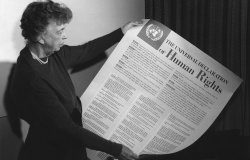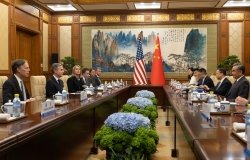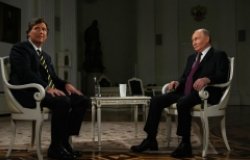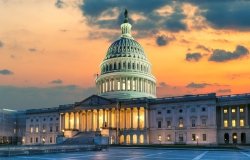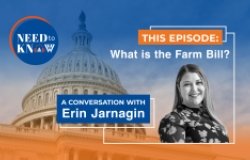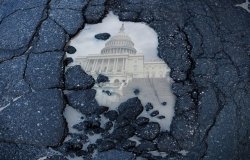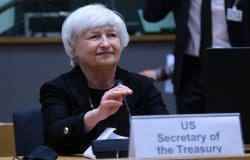Are Committed Ideologues Making Governing Impossible?
In my previous column, “Ideology Isn’t Source of All Partisanship” (Nov. 6), I used partisan votes on special rules in the House as an example of high partisanship unconnected to ideological issues — noting that 17 percent of all House party unity votes in the last Congress were on the previous question and final adoption of rules alone.
The procedural fights that the public perceives as petty partisan bickering are as much a part of a party’s purpose as advancing ideological policy choices. They are used to enhance party self-branding and team-building efforts.
In her book “Beyond Ideology,” University of Maryland political scientist Frances Lee found that little more than half the party votes in the Senate were ideological and well over one-third were procedural or related to nonideological presidential priorities or good government causes. Yet, partisan fights over procedural matters, she notes, “can be just as intense as those over highly controversial ideological issues.”
This column takes a closer look at the extent to which ideology plays a role in today’s partisan polarization. A Duke University psychological study released last month reports that people at the extreme ends of the ideological spectrum are more likely to feel their positions are superior. The study equates such extremism with dogmatism which it defines as “an arrogant assertion of opinions as truths.”
Posing online questions to 527 adults, the study probed nine issues on which conservatives and liberals disagree and the extent to which respondents felt their views were superior. “These findings help to explain why politicians with more extreme views can’t reach across the table,” the study’s lead author, Kaitlin Toner, extrapolates. “As more extreme candidates get elected to Congress, compromise becomes more difficult and deadlocks increase because those with more extreme views are more certain that they are right.”
Economist Robert Samuelson reached a similar conclusion in his Oct. 6 column in the Washington Post, noting that while most political conflicts originate from interest groups and ideologies, the curse of today’s politics is that “it’s become less about interests and more about ideologies — and ideologies breed moral absolutes, rigid agendas and strong emotions.” He says that leads to dysfunction or the inability to mediate differences and conflicts — the central purpose of politics.
The term “ideology” has taken on a pejorative connotation when what is really at work in Congress is the interplay of party principles, convictions and policies, not some comprehensive worldview with European roots. Parties should not be disparaged for standing for something after being derided during the mid-20th century as Tweedledee and Tweedledum with not a dime’s worth of difference between them.
What is being laid on the more conservative wing of the Republican party today is not dissimilar to what occurred in the 1960s when conservatives were being tarred with a broad brush as being radical, right-wing crackpots and paranoids.
The McCarthyism of the 1950s bred a liberal backlash with its own McCarthy-like guilt-by-association tactics. What today is being labeled by some as radical, know-nothing extremism is more a manifestation of political inexperience than it is of some dangerous foreign ideology. Tea party protests are after all as American as, well, America.
Lee points us to Federalist 50 and James Madison’s fear — based on the divisive Pennsylvania state experience in 1783-84 with a Council of Censors — that the emergence of political parties would lead to “fixed and violent” power struggles at the expense of deliberative policy making. When men exercise reason coolly and freely on distinct questions, writes Madison, “they inevitably fall into different opinions on some of them,” but when they are governed by a common passion, “their opinions … will be the same.”
Madison’s observation that unified party voting is driven by nondeliberative passions applies equally to ideological and party preservation issues. Neither ideology nor electoral politics is the sole source of paralyzing polarization. Divided party control of government and fragile majorities in both chambers that could flip at the next election have triggered party unity votes on most things.
It is difficult to disentangle procedural power plays from policy and ideology, especially when the dominant party in each house uses procedures to advance its policy and electoral interests simultaneously. Let the parties celebrate their ideas, clash over their competing policies and still recognize at the end of the day they must come together and perform the basic functions of government.
About the Author

Donald Wolfensberger
Former Director, the Congress Project, Wilson Center; Former Staff Director, House Rules Committee

